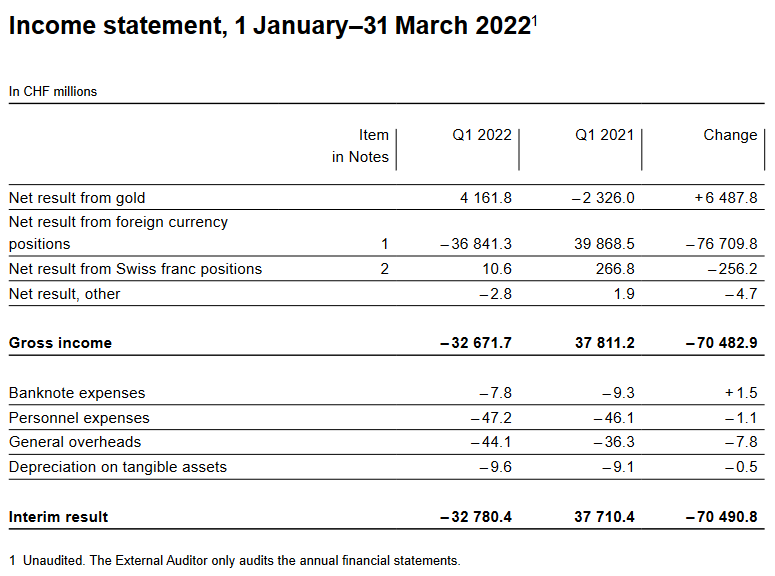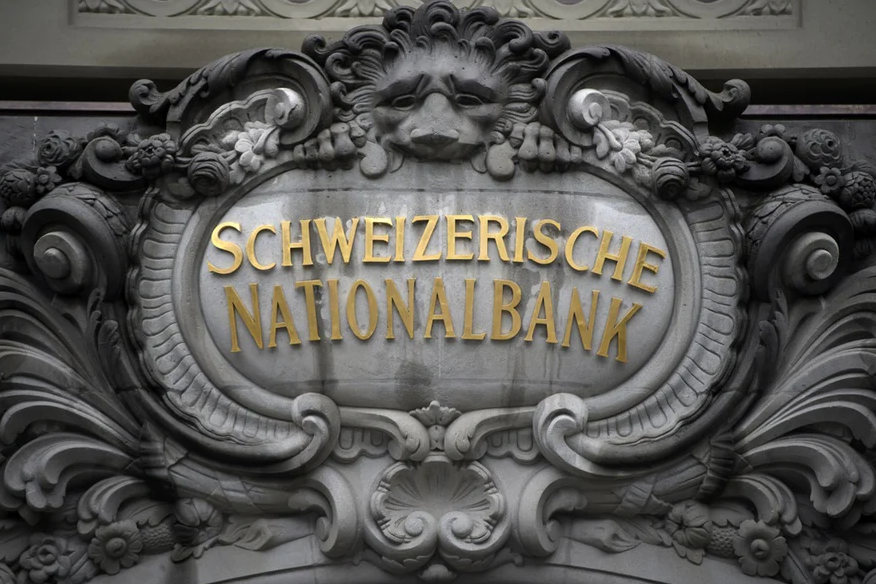Petra Gerlach and Attilio Zanetti become Alternate Members of the Governing Board At its meeting of 4 May 2022, the Federal Council appointed Martin Schlegel as Vice Chairman of the Governing Board of the Swiss National Bank with effect from 1 August 2022. He will succeed Fritz Zurbrügg on the Governing Board when the latter steps down at the end of July 2022. Martin Schlegel has been a member of the Enlarged Governing Board and Deputy Head of Department I since 1 September 2018. He has been with the SNB for nearly 20 years, in which time he has held various management positions. His career at the SNB began in 2003 in the Research unit. Mr Schlegel, who holds a Doctorate in Economics from the University of Basel, then worked in Financial Market Analysis before
Topics:
Swiss National Bank considers the following as important: 1) SNB and CHF, 1.) SNB Press Releases, Featured, newsletter
This could be interesting, too:
RIA Team writes The Importance of Emergency Funds in Retirement Planning
Nachrichten Ticker - www.finanzen.ch writes Gesetzesvorschlag in Arizona: Wird Bitcoin bald zur Staatsreserve?
Nachrichten Ticker - www.finanzen.ch writes So bewegen sich Bitcoin & Co. heute
Nachrichten Ticker - www.finanzen.ch writes Aktueller Marktbericht zu Bitcoin & Co.
 Petra Gerlach and Attilio Zanetti become Alternate Members of the Governing Board
Petra Gerlach and Attilio Zanetti become Alternate Members of the Governing Board
At its meeting of 4 May 2022, the Federal Council appointed Martin Schlegel as Vice Chairman of the Governing Board of the Swiss National Bank with effect from 1 August 2022. He will succeed Fritz Zurbrügg on the Governing Board when the latter steps down at the end of July 2022.
Martin Schlegel has been a member of the Enlarged Governing Board and Deputy Head of Department I since 1 September 2018. He has been with the SNB for nearly 20 years, in which time he has held various management positions. His career at the SNB began in 2003 in the Research unit. Mr Schlegel, who holds a Doctorate in Economics from the University of Basel, then worked in Financial Market Analysis before moving to the Money Market unit. He took over as Head of the Foreign Exchange and Gold unit in 2009, and was appointed Head of the Singapore branch office in mid-2016. In 2015/16 he also worked as an expert for the International Monetary Fund (IMF). He has been a lecturer at the University of Basel since 2010.
Given the challenges for monetary policy in the current environment, ensuring continuity with regard to the responsibilities in the Governing Board is of pivotal importance for the SNB. Department I (based in Zurich) comprises the Secretariat General, the Economic Affairs, International Monetary Cooperation and Statistics divisions, as well as the Legal Services, Compliance, Human Resources, and Premises and Technical Services units. It is headed as before by Thomas Jordan.
Department II (based largely in Berne) consists of the Financial Stability and Cash divisions, as well as the Central Accounting, Controlling, Risk Management, and Operational Risk and Security units. Martin Schlegel will be its new Head.
Department III (based largely in Zurich) is made up of the Money Market and Foreign Exchange, Asset Management, Banking Operations and Information Technology divisions, as well as the Financial Market Analysis unit and the Singapore branch office. It is headed as before by Andréa Maechler. This will ensure that the implementation of monetary policy and investment policy, as well as the expertise that has been built up in recent years in key new areas such as fintech, will remain under the same proven management.
The Federal Council also approved a partial revision of the Regulations on the Organisation of the Swiss National Bank (SR 951.153). This revision is focused on increasing the number of Alternate Members of the Governing Board. It is now to be possible for each Department to have up to two deputies. The increase in the number of deputies is aimed at helping the SNB to continue to manage well the monetary policy and operational challenges that have risen sharply in recent years. At the same time, it will facilitate an even broader integration of different skills in SNB management.
In accordance with the partial revision of the Organisation Regulations, the Federal Council has appointed Petra Gerlach, currently Head of the Monetary Policy Analysis unit in the Economic Affairs division, and Attilio Zanetti, currently Head of the International Monetary Cooperation division, as Alternate Members of the Governing Board as of 1 August 2022. Both will serve as deputies to the Head of Department I.
Petra Gerlach joined the SNB as a Research Assistant in 2004, and was an economist in the Research unit until 2009. She then worked for the Bank for International Settlements and as a professor in Dublin, before returning to the SNB in 2014. She has been Head of the Monetary Policy Analysis unit since April 2017, and Deputy Head of the Economic Affairs division since October 2020.
Attilio Zanetti joined the SNB in 1994 as an economist in what was then the Economic Analysis specialist team. In 2008, he took overall charge of the Economic Analysis unit. In April 2020, he was appointed Head of the International Monetary Cooperation division. In this demanding role, he is responsible for ensuring that the SNB has an appropriate and high- quality presence internationally.
The two existing Alternate Members of the Governing Board, Dewet Moser (Department II) and Thomas Moser (Department III), will remain in their current positions.
Tags: Featured,newsletter







